Tommy Tuberville opposes Biden Administration’s efforts to expand abortion access by mail
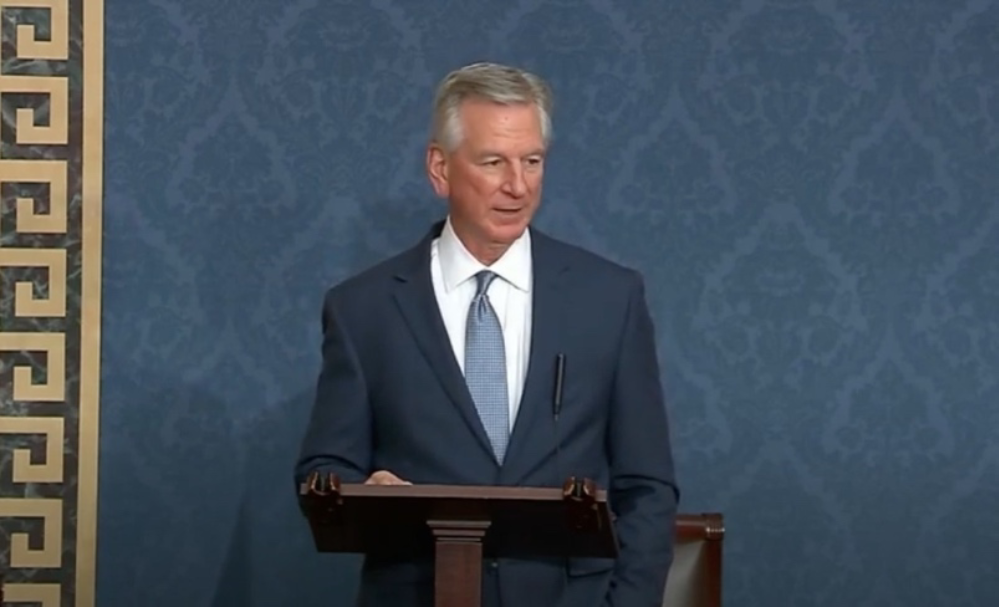
U.S. Senator Tommy Tuberville joined other lawmakers in two separate letters last week to U.S. Attorney General Merrick Garland and U.S. Food and Drug Commissioner Dr. Robert Califf, urging the officials to revoke guidance that removes what Tuberville called key safeguards required by law to protect expectant mothers and their babies. “The reckless distribution of abortion drugs by mail or other carriers to pregnant mothers who have not been examined in person by a physician is not only dangerous and unsafe, it is criminal,” said Sen. Tuberville. ‘Through its decision to permit no-test, mail-order abortions after a telemedicine visit, the FDA has abandoned its dual obligations to protect the public and vulnerable populations from harm and to comply with Federal law, including Federal requirements to protect patient safety and longstanding Federal criminal laws which expressly prohibit the mailing and shipping of abortion drugs.’ Tuberville has been a leading voice on pro-life issues in the U.S. Senate. Additionally, just last week, Senator Tuberville cosponsored a bill to establish a permanent ban on using federal taxpayer dollars for abortion. On January 3rd, 2023, the FDA released new guidance removing in-person dispensing requirements for chemical abortion drugs such as mifepristone, making self-administered abortion drugs permanently available by mail or through certain pharmacies. Tuberville and the other lawmakers sent a detailed letter to Commissioner Califf explaining their view on the policy and legal faults in the FDA decision, citing it as “dangerous, reckless, and illegal.” They claim that the new policy: · Threatens the health and safety of pregnant mothers by eliminating the requirement for in-person dispensing, increasing risks of potentially life-threatening complications without an in-person screening. · Violates the FDA’s legal obligations to protect the safety of women and girls. · Violates longstanding federal criminal laws barring the mailing and shipping of abortion drugs. · Imperils the conscience rights of pharmacists by failing to provide protections for pharmacists who do not want to participate in the practice of abortion. “Through its decision to permit no-test, mail-order abortions after a telemedicine visit, the FDA has abandoned its dual obligations to protect the public and vulnerable populations from harm and to comply with Federal law, including Federal requirements to protect patient safety and longstanding Federal criminal laws which expressly prohibit the mailing and shipping of abortion drugs,” Tuberville and the other lawmakers wrote. “We therefore insist that the FDA pull the deadly drug mifepristone from the market, or, at minimum, promptly restore and further strengthen the initial basic health and safety requirements for abortion drugs, and comply with Federal criminal law.” The positions outlined in the letter have been endorsed by the SBA Pro-Life America, Americans United for Life, CatholicVote, March for Life, U.S. Conference of Catholic Bishops, National Right to Life, Concerned Women for America, Heritage Action, Students for Life of America, Family Research Council, Scholars with the Ethics and Public Policy Center, Family Policy Alliance, and Ethics and Religious Liberty Commission. Tuberville was joined in the letter to Commissioner Califf by U.S. Senators Cindy Hyde-Smith, James Lankford, Steve Daines, Jim Risch, Mike Crapo, Marsha Blackburn, John Hoeven, J.D. Vance, Marco Rubio, Rick Scott, Roger Marshall, Kevin Cramer, Roger Wicker, Ted Cruz, Mike Lee, John Thune, Bill Hagerty, Todd Young, Markwayne Mullen, Mike Braun, Deb Fischer, Ted Budd, Josh Hawley, along with 54 members of the U.S. House of Representatives. Last December, the Office of Legal Counsel of the U.S. Department of Justice (DOJ) released an opinion saying the U.S. Postal Service is legally allowed to deliver abortion drugs, even to mailing addresses in states that decided to prohibit access to chemical abortion pills by mail as a result of the U.S. Supreme Court’s ruling in Dobbs versus the Jackson Women’s Health Organization that reversed the controversial Roe v. Wade decision. The letter to Garland claims that the DOJ’s memo violates existing laws. “It is disappointing, yet not surprising, that the Biden administration’s DOJ has not only abdicated its Constitutional responsibility to enforce the law but also has once again twisted the plain meaning of the law in an effort to promote the taking of unborn life. The OLC memo should be immediately rescinded or, at minimum, redrafted to articulate an accurate application of the law,” Tuberville and the members wrote. The second letter is supported by the Concerned Women for America Legislative Action Committee, Students for Life, Family Policy Alliance, Americans United for Life, CatholicVote, Scholars with the Ethics and Public Policy Center, Heritage Action, the U.S. Conference of Catholic Bishops, the Ethics & Religious Liberty Commission, Family Research Council, March for Life, and SBA Prolife America. Senator Tuberville represents Alabama in the United States Senate and is a member of the Senate Armed Services, Agriculture, Veterans Affairs, and HELP Committees. He is serving his first term in the Senate after unseating incumbent Sen. Doug Jones in the 2020 election. To connect with the author of this story or to comment, email brandonmreporter@gmail.com.
Katie Britt believes Alabama taxpayers do not want taxes paying for elective abortions

United States Senators Katie Britt and Roger Wicker joined 45 other Senators in introducing the No Taxpayer Funding for Abortion Act. This legislation would establish a single, government-wide standard to permanently prohibit the flow of federal funding for abortion. “The vast majority of Alabamians do not want their hard-earned dollars funding elective abortions in California and New York,” Britt stated. “The Hyde Amendment has saved an estimated 2.5 million lives – approximately half the population of Alabama,” said Sen. Britt. “Sadly, radicals in the Democratic Party continue to trumpet their calls for abortion at any time, for any reason. They have now targeted the long-standing, bipartisan Hyde Amendment, annually passed by Congress since 1976, which ensures federal taxpayer dollars are not used to fund abortions. It is time to make the Hyde Amendment and its lifesaving protections permanent so the far-left does not attempt to hold the nation hostage every year. The vast majority of Alabamians do not want their hard-earned dollars funding elective abortions in California or New York. I will continue to fight to defend life, support parents, grow opportunities for hardworking families, and preserve the American Dream for our children and our children’s children.” “Most Americans do not want their hard-earned tax dollars being used for abortion-on-demand, but our current patchwork of regulations has brought years of uncertainty,” stated Sen. Wicker. “The No Taxpayer Funding for Abortion Act would simplify federal rules, ensuring that American tax dollars are never used for the destruction of innocent, unborn life.” This legislation would make permanent the restrictions on funding for elective abortion and elective abortion coverage, including the Hyde Amendment, which currently relies on yearly approval. It would also eliminate Obamacare’s taxpayer subsidies for elective abortion coverage on the Affordable Care Act exchanges through refundable tax credits. U.S. Sen. Tommy Tuberville (R-Alabama) also co-sponsored the legislation. “Millions of hardworking Americans believe that life begins at conception and don’t want their taxpayer dollars inadvertently funding abortions,” said Sen. Tuberville. “As a Christian and as a conservative, I share their belief that every life is sacred and every American has a right to life. That’s why I’m proud to sign on to this legislation that will solidify abortion funding restrictions that have been in place for decades and better protect the unborn.” Britt, Tuberville, and Wicker joined Sens. Mitch McConnell (R-Kentucky) John Barrasso (R-Wyoming), Marsha Blackburn (R-Tennessee), John Boozman (R-Arkansas), Mike Braun (R-Indiana), Ted Budd (R-North Carolina), Shelley Moore Capito (R-West Virginia), Bill Cassidy (R-Louisiana), John Cornyn (R-Texas), Tom Cotton (R-Arkansas), Kevin Cramer (R-North Dakota), Mike Crapo (R-Idaho), Ted Cruz (R-Texas), Steve Daines (R-Montana), Joni Ernst (R-Iowa), Deb Fischer (R-Nebraska), Lindsey Graham (R-South Carolina), Chuck Grassley (R-Iowa), Bill Hagerty (R-Tennessee), Josh Hawley (R-Missouri), John Hoeven (R-North Dakota), Cindy Hyde-Smith (R-Mississippi), Ron Johnson (R-Wisconsin), John Kennedy (R-Louisiana), James Lankford (R-Oklahoma), Mike Lee (R-Utah), Cynthia Lummis (R-Wyoming), Roger Marshall (R-Kansas), Jerry Moran (R-Kansas), Markwayne Mullin (R-Oklahoma), Rand Paul (R-Kentucky), Pete Ricketts (R-Nebraska), Jim Risch (R-Idaho), Mitt Romney (R-Utah), Mike Rounds (R-South Dakota), Marco Rubio (R-Florida), Eric Schmitt (R-Missouri), Rick Scott (R-Florida), Tim Scott (R-South Carolina), Dan Sullivan (R-Alaska), Thom Tillis, (R-North Carolina), John Thune (R-South Dakota), J.D. Vance (R-Ohio), and Todd Young (R-Indiana). With Democrats in control of the Senate, it is unlikely that Senate Majority Leader Chuck Schumer will allow this bill to even be introduced on the Senate floor. To connect with the author of this story or to comment, email brandonmreporter@gmail.com.
Tommy Tuberville supports bill to permanently ban taxpayer funding for abortions

U.S. Senators Tommy Tuberville and Katie Britt joined 45 of their Senate colleagues in introducing the No Taxpayer Funding for Abortion Act to establish a permanent prohibition on federal funding for abortion. Tuberville said in a statement, “Every life is sacred.” “Millions of hardworking Americans believe that life begins at conception and don’t want their taxpayer dollars inadvertently funding abortions,” said Sen. Tuberville stated. “As a Christian and as a conservative, I share their belief that every life is sacred and every American has a right to life. That’s why I’m proud to sign on to this legislation that will solidify abortion funding restrictions that have been in place for decades and better protect the unborn.” “Most Americans do not want their hard-earned tax dollars being used for abortion-on-demand, but our current patchwork of regulations has brought years of uncertainty,” Sen. Roger Wicker said. “The No Taxpayer Funding for Abortion Act would simplify federal rules, ensuring that American tax dollars are never used for the destruction of innocent, unborn life.” The bill seeks to change 40 years of inconsistent policies that have regulated federal funding for abortion. It would make funding restrictions permanent for abortion and elective abortion coverage, including the Hyde Amendment, which requires annual approval. The legislation would also eliminate taxpayer-funded subsidies for elective abortion coverage currently offered on Affordable Care Act exchanges through refundable tax credits. Tuberville, Wicker, and Britt joined Sens. Mitch McConnell (R-Kentucky) John Barrasso (R-Wyoming), Marsha Blackburn (R-Tennessee), John Boozman (R-Arkansas), Mike Braun (R-Indiana), Ted Budd (R-North Carolina), Shelley Moore Capito (R-West Virginia), Bill Cassidy (R-Louisiana), John Cornyn (R-Texas), Tom Cotton (R-Arkansas), Kevin Cramer (R-North Dakota), Mike Crapo (R-Idaho), Ted Cruz (R-Texas), Steve Daines (R-Montana), Joni Ernst (R-Iowa), Deb Fischer (R-Nebraska), Lindsey Graham (R-South Carolina), Chuck Grassley (R-Iowa), Bill Hagerty (R-Tennessee), Josh Hawley (R-Missouri), John Hoeven (R-North Dakota), Cindy Hyde-Smith (R-Mississippi), Ron Johnson (R-Wisconsin), John Kennedy (R-Louisiana), James Lankford (R-Oklahoma), Mike Lee (R-Utah), Cynthia Lummis (R-Wyoming), Roger Marshall (R-Kansas), Jerry Moran (R-Kansas), Markwayne Mullin (R-Oklahoma), Rand Paul (R-Kentucky), Pete Ricketts (R-Nebraska), Jim Risch (R-Idaho), Mitt Romney (R-Utah), Mike Rounds (R-South Dakota), Marco Rubio (R-Florida), Eric Schmitt (R-Missouri), Rick Scott (R-Florida), Tim Scott (R-South Carolina), Dan Sullivan (R-Alaska), Thom Tillis, (R-North Carolina), John Thune (R-South Dakota), J.D. Vance (R-Ohio), and Todd Young (R-Indiana). Swing Republican Sens. Lisa Murkowski and Susan Collins did not sign off on the legislation, and neither did any of the 52 Senate Democrats who hold the majority in the body. U.S. Representative Christopher Smith (R-New Jersey) has introduced similar legislation in the House of Representatives. To connect with the author of this story, or to comment, email brandonmreporter@gmail.com.
Congress moves to ban TikTok from U.S. government devices

TikTok would be banned from most U.S. government devices under a spending bill Congress unveiled early Tuesday, the latest push by American lawmakers against the Chinese-owned social media app. The $1.7 trillion package includes requirements for the Biden administration to prohibit most uses of TikTok or any other app created by its owner, ByteDance Ltd. The requirements would apply to the executive branch — with exemptions for national security, law enforcement, and research purposes — and don’t appear to cover Congress, where a handful of lawmakers maintain TikTok accounts. TikTok is consumed by two-thirds of American teens and has become the second-most popular domain in the world. But there’s long been bipartisan concern in Washington that Beijing would use legal and regulatory power to seize American user data or try to push pro-China narratives or misinformation. Brooke Oberwetter, a spokesperson for TikTok, called the ban “a political gesture that will do nothing to advance national security interests.” TikTok is developing security and data privacy plans as part of an ongoing national security review by President Joe Biden’s administration. “These plans have been developed under the oversight of our country’s top national security agencies — plans that we are well underway in implementing — to further secure our platform in the United States, and we will continue to brief lawmakers on them,” Oberwetter said in a statement. Speaking Friday, CIA Director William Burns said Beijing can “insist upon extracting the private data of a lot of TikTok users in this country and also to shape the content of what goes on to TikTok as well to suit the interests of the Chinese leadership.” “I think those are real challenges and a source of real concern,” Burns told PBS. He declined to take a position on congressional efforts to limit TikTok. House Speaker Nancy Pelosi, D-Calif., was pushing to include the TikTok provision in the big year-end bill, her office said. Sen. Josh Hawley, a Missouri Republican who authored a version of the TikTok bill that passed the Senate last week, called the government device ban “the first major strike against Big Tech enacted into law.” Speaking to reporters Tuesday, Hawley said users should have the right to use TikTok without having their data subject to Beijing’s control. He called for the Biden administration to force ByteDance to divest its U.S. operations. Courts blocked former President Donald Trump’s efforts to ban TikTok from U.S. smartphone app stores. “We shouldn’t have to ban it,” Hawley said. “Put up a firewall between Beijing and TikTok.” Rep. Raja Krishnamoorthi, D-Ill., has co-sponsored legislation to prohibit TikTok from operating in the U.S. altogether. He called the government device ban an appropriate initial step and said there was a “groundswell of support” for wider action. “We’re not just talking about Republicans and Democrats and independents,” said Krishnamoorthi, a member of the House Intelligence Committee. “We’re talking about parents who are concerned broadly about social media and TikTok in particular.” Republished with the permission of The Associated Press.
Democrats kept the Senate this year, but 2024 may be harder
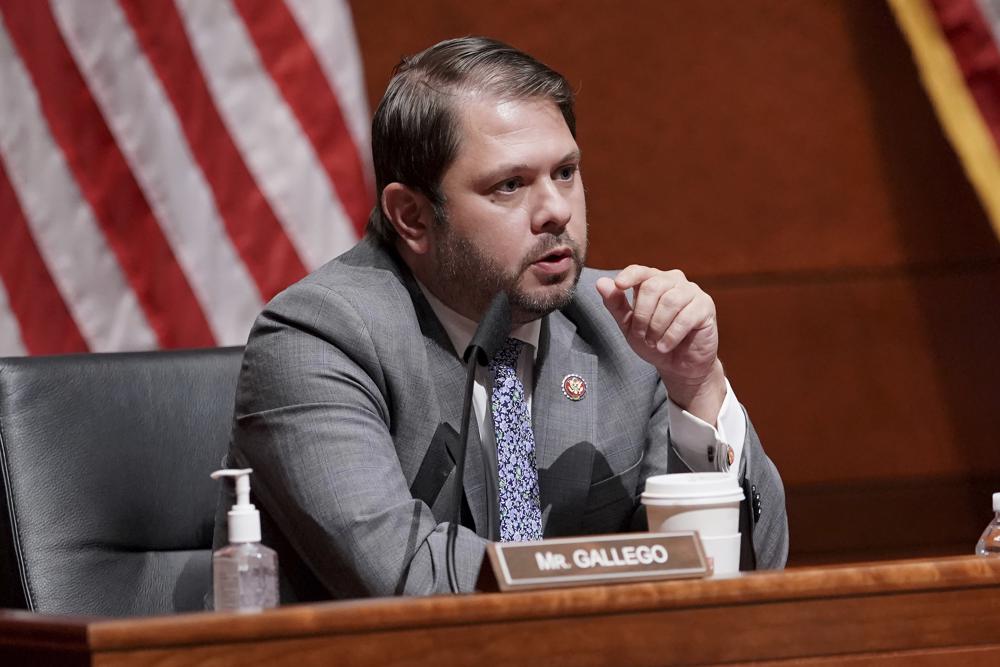
Democrats celebrating a successful effort to keep control of the U.S. Senate this year will soon confront a 2024 campaign that could prove more challenging. The party enters the next cycle defending 23 seats, including two held by independents who caucus with Democrats. That’s compared with just 10 seats that Republicans hope to keep in their column. Adding to the potential hurdles is that some 2024 contests are in states that have become increasingly hostile to Democrats, including Montana, Ohio, and West Virginia. Other Democratic-held seats are in some of the same hotly contested states that were at the center of this year’s midterms, such as Pennsylvania, Arizona, and Nevada. And while Democrats carried each of those races, they did so at great cost and with sometimes narrow margins. In Nevada, for instance, Democratic incumbent Sen. Catherine Cortez Masto won by less than 1 percentage point, or about 9,000 votes. For now, both parties insist they’re laser-focused on coming out on top in the December 6 Senate runoff in Georgia. But Democrats who are on the ballot in 2024 know that they could face fierce headwinds and are studying the results of this year’s election when the party outperformed expectations. For Nevada Sen. Jacky Rosen, a Democrat facing her first reelection campaign, that means staying focused on kitchen table issues and touting legislation like the infrastructure law and gun violence legislation signed by President Joe Biden. “We know that races are always close,” Rosen said in an interview. “We never take anything for granted.” The dynamics of the next Senate campaign could be influenced by a variety of outside factors, particularly the presidential election and the attention it generates. Biden, who turned 80 this month, has said his “intention” is to run for reelection and that he will make a final decision early next year. Former President Donald Trump has already announced a third White House bid, and multiple other Republicans are lining up to launch campaigns. The eventual nominee in each party could have a profound impact on down-ballot races, including those for Senate. But perhaps the biggest question for Senate Democrats seeking reelection will be who Republicans nominate as their opponents. The GOP lost several Senate elections this year, including those in Arizona, Pennsylvania, and Nevada, after Trump-backed candidates struggled to raise money and connect with a broader, more moderate range of voters during the general election. In Nevada, the Republican field to challenge Rosen has not begun to shape up but is expected to attract several contenders. One name receiving attention is Sam Brown, a former U.S. Army captain who was awarded a Purple Heart after being severely wounded in Afghanistan. Brown ran for Senate this year and put up a strong challenge in the Republican primary before losing to Adam Laxalt, who lost in the general election to Cortez Masto. Richard Hernandez, who was Brown’s campaign adviser, said, “He has committed to his supporters that he will never stop fighting for their issues, but he has not made any decisions as to whether that involves a future run for office.” Also in the southwest, Arizona Sen. Kyrsten Sinema, a centrist Democrat, will be up for reelection. The race, like other recent statewide contests in Arizona, is expected to be very competitive. But Sinema is likely to first face a well-funded primary challenger after angering much of the Democratic base by blocking or watering down progressive priorities like a minimum wage increase or Biden’s big social spending initiatives. She has not said whether she plans to run for reelection. Sinema’s most prominent potential primary challenger is U.S. Rep. Ruben Gallego, who has a long history of feuding with Sinema. Gallego has not announced his plans for 2024 but has made it no secret that he’s thinking about challenging Sinema. He even raised money on the prospect he might oppose Sinema. An independent expenditure group is also raising money, saying it will support grassroots organizations committed to defeating Sinema in a Democratic primary. Republicans hope a bruising Democratic primary might give them an opening to win the seat after losing Senate races in Arizona in three consecutive elections. Sinema is among a trio of moderate Senate Democrats who have sometimes used their leverage in an evenly divided chamber to block or blunt some of Biden’s plans and nominees. They will also be among the party’s most vulnerable incumbents in 2024. The other two senators, Joe Manchin of West Virginia and Jon Tester of Montana, will be running as Democrats in states that Trump handily carried in 2020. Manchin has already drawn a GOP challenger in U.S. Rep. Alex Mooney, who declared a week after winning reelection that he was setting his sights on higher office. Manchin has not yet said whether he’ll run for reelection. Republicans see Tester, a three-term senator, as vulnerable, and the opportunity to run for the seat could draw a fierce primary contest between former Interior Secretary Ryan Zinke and Rep. Matt Rosendale. Zinke, who won a House seat in this year’s midterm elections, said he will decide whether to run next year, and Rosendale declined to answer. Tester has not announced if he will seek another term but has said he anticipates 2024 will be just as tough as his last race in 2018, when he beat Rosendale in a close contest. In Pennsylvania, Democratic U.S. Sen. Bob Casey has not said whether he intends to run for a fourth term. Casey easily won reelection in 2018, but Pennsylvania has been competitive for Republicans, including in this year’s Senate race won by Democrat John Fetterman. One potential Republican challenger whose name has been floated in Pennsylvania is former hedge fund CEO David McCormick, who narrowly lost the Republican primary in this year’s race to celebrity heart surgeon Dr. Mehmet Oz. McCormick advisers declined to comment on that prospect. Conservative activist Kathy Barnette, who finished a close third in the Republican primary, didn’t respond to messages about whether she’s considering a 2024 campaign. Wisconsin, which saw Republican Sen. Ron Johnson narrowly win reelection this year, is also expected to have
Lawmakers coordinate effort to stop blacklisted Chinese firms from receiving U.S. tax dollars
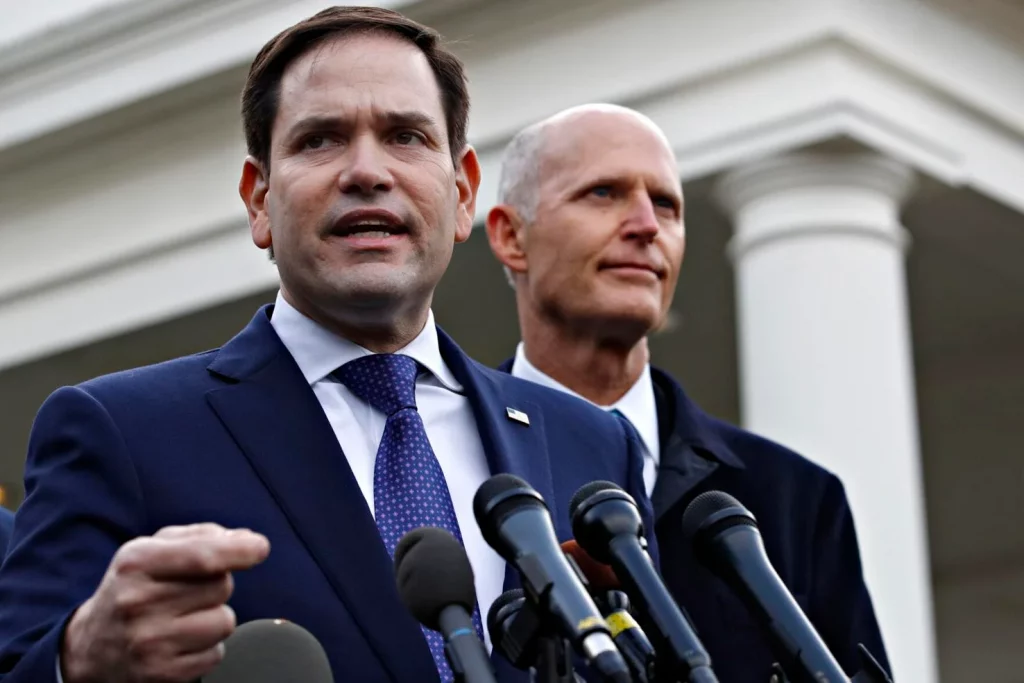
Several Republican senators introduced new legislation this week that would prevent U.S. taxpayer dollars from going to certain Chinese firms. Sen. Marco Rubio, R-Fla., introduced the Turn Off the Tap Act along with Sen. Marsha Blackburn, R-Tenn., and Sen. Rick Scott, R-Fla. The bill would stop any federal funds from going to companies that have been blacklisted by the Department of Commerce’s Entity List and the Non-SDN Chinese Military-Industrial Complex Companies List. “It’s not only dangerous to fund Chinese businesses with American taxpayer dollars, but it’s also dumb,” Rubio said. “This bill would prohibit federal funds from bankrolling Chinese, and other firms we know are not acting in our best interest.” Lawmakers also argued China is taking advantage of the U.S. while not addressing its human rights violations. “We know Communist China will stop at nothing to try and exploit American markets and take advantage of American businesses operating within the genocidal regime’s borders,” Scott said. “The Turn Off the Tap Act will stop the flow of hardworking Americans’ dollars to countries like Communist China who want to hurt our economy. This legislation is a no-brainer, and I urge the support of my colleagues for its quick passage.” The federal funding goes to these companies via federal grants or contracts which, aside from the national security concerns, threatens American businesses since Chinese companies have a history of predatory investment and stealing U.S. intellectual property. Experts say Chinese companies often use cultural exchange programs or shell companies to access U.S. investment. “It is unconscionable that the Biden administration has enabled the Chinese Communist Party to rake in cash from American taxpayers,” Blackburn said. “Rather than letting Joe Biden award grants or sign federal contracts that undermine the United States, I am cosponsoring legislation to cut our adversaries off. The White House needs to stop emboldening the New Axis of Evil and start putting America first.” Rep. Claudia Tenney, R-N.Y., introduced companion legislation in the House with the same goal. “The American people’s tax dollars should not be invested in blacklisted Chinese companies,” she said. “Yet today, because of weak policies in Washington, they continue to be. It’s time we cut off the tap. “The Chinese Communist Party’s predatory trade policies, significant human rights abuses, and threats to American security are absolutely unacceptable.” Sen. Josh Hawley, R-Mo., introduced a similar bill Monday, the “Time to Choose Act,” which would “prohibit the Department of Defense and other federal agencies from contracting with consulting firms like McKinsey & Company who are simultaneously providing services to the Chinese government or its affiliates.” Hawley said, “The fact that these consultants are awarded huge contracts by our Defense Department and other federal agencies while they are simultaneously working to advance China’s efforts to coerce the United States is appalling and completely unacceptable. It is well past time that we hold these companies accountable and prohibit this kind of conflict of interest in government contracting.” Republished with the permission of The Center Square.
Tommy Tuberville, colleagues stand up for agriculture producers
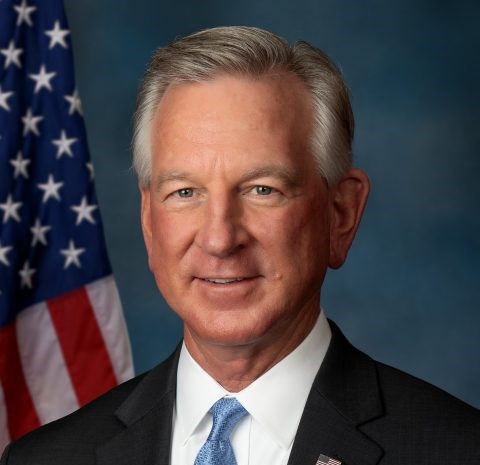
On Monday, Sen. Tommy Tuberville joined 31 colleagues in sending a letter to the Securities and Exchange Commission (SEC) to push back against overreach that would place climate disclosure regulations on farmers, ranchers, and agriculture producers. The senators are concerned about the proposed rule on “Enhanced and Standardization of Climate-Related Disclosures for Investors.” The proposed rule would require publicly-traded companies to include certain climate-related disclosures in their registration statements and periodic reports. The group believes this will impose burdensome greenhouse gas reporting requirements on all entities within a company’s value chain, including farmers and ranchers who fall outside of the SEC’s congressionally-provided authority. “The SEC’s congressionally-mandated mission is to protect investors; foster fair, orderly, and efficient markets; and facilitate capital formation,” the senators wrote. “However, this proposed rule moves well beyond the SEC’s traditional regulatory authority by mandating climate change reporting requirements that will not only regulate publicly traded companies, but will impact every company in the value chain. Should the SEC move forward with this rule, it would be granted unprecedented jurisdiction over America’s farms and ranches, creating an impractical regulatory burden for thousands of businesses outside of the scope of the SEC’s purview, including our nation’s farmers and ranchers,” they continued. Other signers include U.S. Senators John Hoeven (R-ND), Tim Scott (R-SC), Cynthia Lummis (R-WY), Roger Marshall (R-KS), James Risch (R-ID), Mike Crapo (R-ID), Steve Daines (R-MT), Thom Tillis (R-NC), Richard Burr (R-NC), Ted Cruz (R-TX), John Barrasso (R-WY), Bill Hagerty (R-TN), Tom Cotton (R-AR), Rick Scott (R-FL), Chuck Grassley (R-IA), Roger Wicker (R-MS), Deb Fischer (R-NE), Kevin Cramer (R-ND), John Kennedy (R-LA), Bill Cassidy (R-LA), Mike Braun (R-IN), Mike Rounds (R-SD), Joni Ernst (R-IA), James Lankford (R-OK), John Cornyn (R-TX), Jerry Moran (R-KS), Lindsay Graham (R-SC), John Thune (R-SD), Todd Young (R-Ind.), John Boozman (R-AR) and Josh Hawley (R-MO).
As gas prices hit record highs, analysts say summer energy costs will be no better

Electricity prices will rise 3.9% this summer compared to the summer of 2021, the U.S. Energy Information Administration estimates, another bill ticking higher for Americans as they grapple with record-high gas prices and inflation. Rising energy costs have garnered national attention as gas prices hit record highs every day this week, an unusual occurrence that has economists worried about the summer. Energy costs, though, have been rising for more than a year, and not just gas prices. The Bureau of Labor Statistics released new data this month showing that despite better prices in April, energy costs have been soaring in the past year. “The energy index rose 30.3 percent over the last year, and the food index increased 9.4 percent, the largest 12-month increase since the period ending April 1981,” BLS said. Critics pointed to these increases and blasted President Joe Biden’s energy policies since taking office. They also pointed out that Biden said in March that prices would decrease. “Let’s review,” said U.S. Sen. Josh Hawley, R-Mo. “Upon taking office, Biden canceled [the] Keystone [pipeline project], halted oil and gas leases, imposed new regulations on energy production, and cut off support for fossil fuels. But [Energy Secretary Jennifer Granholm] says: no effect on gas prices.” Energy industry analysts also said rolling blackouts may be on the horizon. “The combination of much higher natural gas prices – 50% higher than last year, and increased electricity demand, along with continued retirements of fossil and nuclear plants, means that wholesale electric prices this summer are likely to soar,” said Jonathan Lesser, an energy expert at the Manhattan Institute. “Some of the largest power system operators, including in California and the Midwest, are also warning about possible rolling blackouts because of too little generating capacity. The result will be higher retail prices for consumers and businesses, with the latter contributing to more inflation.” Lesser added that alternative energy sources are not yet ready to be much help. “And don’t expect increased wind and solar generation to lower electricity prices, contrary to claims by proponents. Because of wind and solar’s inherent intermittency, they both require backup generation to be ready at a moment’s notice, which consumers and businesses will pay for,” he said. All these issues have hit Americans hard. A recent NBC News poll asked Americans, “Do you think that your family’s income is … going up faster than the cost of living, staying about even with the cost of living, or falling behind the cost of living?” In response, 65% of those surveyed said they are falling behind, while 28% said they are staying about even. Meanwhile, only 6% said their income is rising faster than the cost of living. A Rasmussen Reports poll from last month reported that surveyed Americans are more concerned about high gas prices than climate change. “A majority of voters are concerned about rising energy costs and favor increased drilling for oil and gas, although most Democratic voters consider reducing climate change a higher priority,” Rasmussen said. Republished with the permission of The Center Square.
Ketanji Brown Jackson pledges to decide cases ‘without fear or favor’
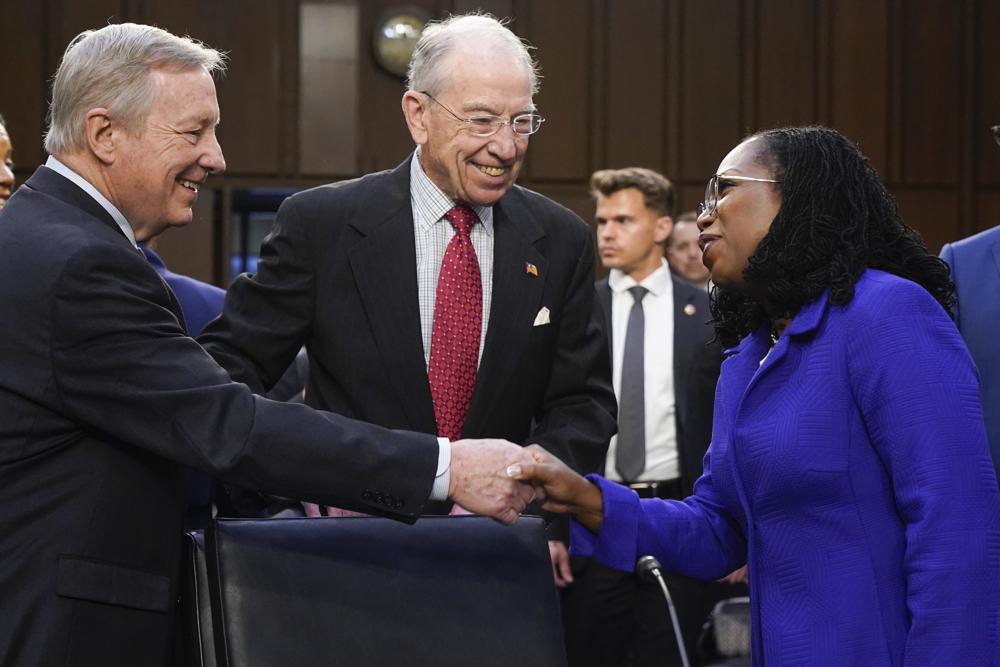
Supreme Court nominee Ketanji Brown Jackson pledged Monday to decide cases “without fear or favor” if the Senate confirms her historic nomination as the first Black woman on the high court. Jackson, 51, thanked God and professed love for “our country and the Constitution” in a 12-minute statement to the Senate Judiciary Committee at the end of her first day of confirmation hearings, nearly four hours almost entirely consumed by remarks from the panel’s 22 members. Republicans promised pointed questions over the coming two days, with a special focus on her record on criminal matters. Democrats were full of praise for President Joe Biden’s Supreme Court nominee. With her family sitting behind her, her husband in socks bearing George Washington’s likeness, Jackson stressed that she has been independent, deciding cases “from a neutral posture” in her nine years as a judge, and that she is ever mindful of the importance of that role. “I have dedicated my career to ensuring that the words engraved on the front of the Supreme Court building — equal justice under law — are a reality and not just an ideal,” she declared. Barring a significant misstep, Democrats who control the Senate by the slimmest of margins intend to wrap up her confirmation before Easter. She would be the third Black justice, after Thurgood Marshall and Clarence Thomas, as well as the first Black woman on the high court. Jackson’s sternest Republican critics, as well as her Democratic defenders, all acknowledged the historic, barrier-breaking nature of her presence. There were frequent reminders that no Black woman had been nominated to the high court before her and repeated references to another unique aspect of her nomination: Jackson is the first former public defender nominated to be a justice. “It’s not easy being the first. Often, you have to be the best, in some ways the bravest,” Democratic Sen. Dick Durbin of Illinois, the committee chairman, said in support. Sen. Cory Booker, D-N.J., spoke of the “joy” in the room and acknowledged her family’s pride as Jackson’s parents beamed behind her. Booker repeated a story Jackson has frequently told about a letter her youngest daughter wrote to President Barack Obama several years ago touting her mother’s experience. “We are going to see a new generation of children talking about their mamas and daring to write the president of the United States that my mom should be on the Supreme Court,” Booker said. “I want to tell your daughter right now, that dream of hers is so close to being a reality.” In their opening statements, Democrats sought to preemptively rebut Republican criticism of her record on criminal matters as a judge and before that as a federal public defender and a member of the U.S. Sentencing Commission. Jackson “is not anti-law enforcement” and is not “soft on crime,” Sen. Patrick Leahy, D-Vt., said, noting that members of Jackson’s family have worked in law enforcement and that she has support from some national law enforcement organizations. ”Judge Jackson is no judicial activist.” The committee’s senior Republican, Sen. Chuck Grassley of Iowa, promised Republicans would “ask tough questions about Jackson’s judicial philosophy” without turning the hearings into a ”spectacle.” Sen. Lindsey Graham, R-S.C., noted that Democrats had opposed some past Republican judicial nominees who were Black or Hispanic, and he said that he and his GOP colleagues wouldn’t be deterred by Jackson’s race from asking probing questions. He said of some criticism from the left: “It’s about, ‘We’re all racist if we ask hard questions.’ That’s not going to fly with us.” Graham was one of three Republicans to support Jackson’s confirmation, 53-44, as an appellate judge last year. But he has indicated over the past several weeks that he is unlikely to vote for her again. While few Republicans are likely to vote for her, most GOP senators did not aggressively criticize Jackson, whose confirmation would not change the court’s 6-3 conservative majority. Several Republicans used their time to denounce Senate Democrats instead of Jackson’s record. The Republicans are trying to use her nomination to brand Democrats as soft on crime, an emerging theme in GOP midterm election campaigns. Biden has chosen several former public defenders for life-tenured judicial posts. In addition, Jackson served on the U.S. Sentencing Commission, an independent agency created by Congress to reduce disparity in federal prison sentences. With Jackson silently taking notes, Sen. Josh Hawley, R-Mo., said in his opening statement that his research showed that she had a pattern of issuing lower sentences in child pornography cases, repeating comments he wrote in a Twitter thread last week. The Republican National Committee echoed his claims, which Hawley did not raise when he questioned Jackson last year before voting against her appeals court confirmation. The White House, along with several Democrats at the hearing, has rejected Hawley’s criticism as “toxic and weakly presented misinformation.” Former Alabama Sen. Doug Jones, who is guiding Jackson as she navigates the Senate process, told reporters afterward that “she will be the one to counter many of those questions” from Hawley and others on Tuesday and Wednesday. Hawley is one of several committee Republicans, along with Ted Cruz of Texas and Tom Cotton of Arkansas, who are potential 2024 presidential candidates, and their aspirations may collide with other Republicans who would prefer not to pursue a scorched-earth approach to Jackson’s nomination. Her testimony will give most Americans, as well as the Senate, their most extensive look yet at the Harvard-trained lawyer with a broader resume than many nominees. She would be the first justice with significant criminal defense experience since Marshall. Jackson appeared before the same committee last year, after Biden chose her to fill an opening on the federal appeals court in Washington, just down the hill from the Supreme Court. The American Bar Association, which evaluates judicial nominees, has given her its highest rating, “well qualified.” Biden chose Jackson in February, fulfilling a campaign pledge to nominate a Black woman to the Supreme Court for the first time in American history. She would take the seat of Justice
Donald Trump reasserts GOP dominance as others focus on midterms

Leading Republicans spent much of three days avoiding Donald Trump’s chief grievances or ignoring him altogether as they unified behind a midterm message designed to win back the voters the polarizing former president alienated while in office. But by the end of the four-day Conservative Political Action Conference, Trump had reminded those who want to move on that he remains the most powerful voice in Republican politics. In his keynote address Saturday night, Trump indicated he planned to run for president a third time in 2024. He falsely blamed his 2020 election loss on widespread voter fraud, for which there is no evidence. And on Sunday, he was the overwhelming winner of a presidential preference straw poll of conference attendees. “We did it twice, and we’ll do it again,” Trump said of running in 2024. Even so, he has teased about a 2024 campaign before, and his vow this time was not necessarily ironclad. As invading Russian troops battled with Ukrainian forces, Trump also described Russian President Vladimir Putin as “smart.” “Of course he’s smart,” Trump said in his remarks Saturday, doubling down on praise of the Russian leader that many other Republicans have avoided after the invasion. “But the real problem is our leaders are dumb. Dumb. So dumb.” While Trump expressed support for the Ukrainian people and called the country’s president, Volodymyr Zelenskyy, a “brave man,” he also noted his ties with other leading autocrats. He specifically pointed to his friendly relationships with Xi Jinping of China and North Korean leader Kim Jong Un. Up until Trump’s appearance, lies about election fraud, the focus of last year’s conference, had been an afterthought among the top speakers. No one parroted Trump’s approving rhetoric toward Putin. And some leading Republicans didn’t even mention Trump’s name. Instead, those most likely to seek the GOP’s 2024 presidential nomination not named Trump united behind an agenda that includes more parental control of schools, opposition to pandemic-related mandates, and a fierce rejection of “woke” culture. The message from more than a half-dozen elected officials, delivered to thousands of mostly white activists at an event that usually celebrates far-right rhetoric, does not mean the party has turned its back on Trumpism. Far from it. The former president was a frequent topic among some of the conference’s lower-profile speakers. T-shirts proclaiming “Trump won” were being sold in the hallways. And in the straw poll of 2,574 conference attendees, Trump earned 59%, followed by Florida Gov. Ron DeSantis with 28%. No one else had more than 2%. When asked for their preference should Trump not run in 2024, DeSantis earned 61%, with no one else earning more than 6% of the vote. The straw poll only measured the opinion of those at the conference, not broader Republican sentiment. Aside from Trump, Florida Gov. Ron DeSantis was a crowd favorite throughout the four-day conference. Audience members applauded almost every time his name was mentioned, or his picture appeared on big screens. Conference organizer Matt Schlapp said Trump remains a dominant force, but he does not have a lock on the party’s base. “No. 1 is, Does he run again? And it’s overwhelming that people want him to,” Schlapp said. “But there’s a diversity of opinion.” And while Trump’s most controversial supporters were generally given lower-profile speaking slots over the four-day program, they were not excluded. Rep. Majorie Taylor Greene, R-Ga., appeared on a Saturday morning panel hours after being featured at a conference of pro-Trump white nationalists. Trump offered Taylor Greene a particularly warm shoutout during his speech as he ticked down the Republican officials in attendance. “I refuse to shut up,” Taylor Greene said earlier in the day during a brief appearance as she railed against “Democrat communists.” Despite Trump’s dominant place at the head of the Republican Party, other party leaders are increasingly optimistic they have found a forward-looking strategy to overcome pro-Trump extremism and expand the party’s appeal with control of Congress at stake in November. It’s essentially the same playbook that Virginia’s Republican Gov. Glenn Youngkin used last fall when he won in the swing state by avoiding Trump and his biggest grievances, including the false notion that the 2020 presidential election was plagued by mass voter fraud. “There are people that perhaps have never voted the same way any of you have in a presidential race, and they’re really angry,” Florida Sen. Marco Rubio said Friday. “And that’s why I believe that for all the negative we’ve heard, the pendulum is swinging.” Democrats are clinging to paper-thin majorities in the House and Senate, and voter sentiment has swung in an ominous direction for them since President Joe Biden took office in January 2021. In an AP-NORC poll conducted Feb. 18-21, 70% of Americans said the country was headed in the wrong direction. As few as 44% said the same in April 2021. Some leading Republicans seemed intent at CPAC on not helping Democrats by embracing Trump. Missouri Sen. Josh Hawley, who tried to block the certification of Biden’s electoral victory after the Jan. 6 Capitol attack, sidestepped a question about whether he would challenge Trump in a 2024 prospective matchup. “I’ve said I’m not planning to run for president,” Hawley said. He also declined to say whether he wants Trump to run again in 2024: “I never give him advice, including on this.” Hawley also said it was a mistake for Republicans like Trump to offer soft praise for Putin: “Putin is our enemy. Let’s be clear about that.” DeSantis, who has also refused to rule out a 2024 presidential bid should Trump run, did not mention the former president in his 20-minute address, focusing instead on his resistance to mask and vaccine mandates. Trump’s former secretary of state, Mike Pompeo, spoke about his work in the Trump administration, but he did not repeat his own recent flattering comments about Putin, in which he called the Russian leader “very capable” and said he has “enormous respect for him.” South Dakota Gov. Kristi
Congress backs Joe Biden on Russia sanctions, clamors for more
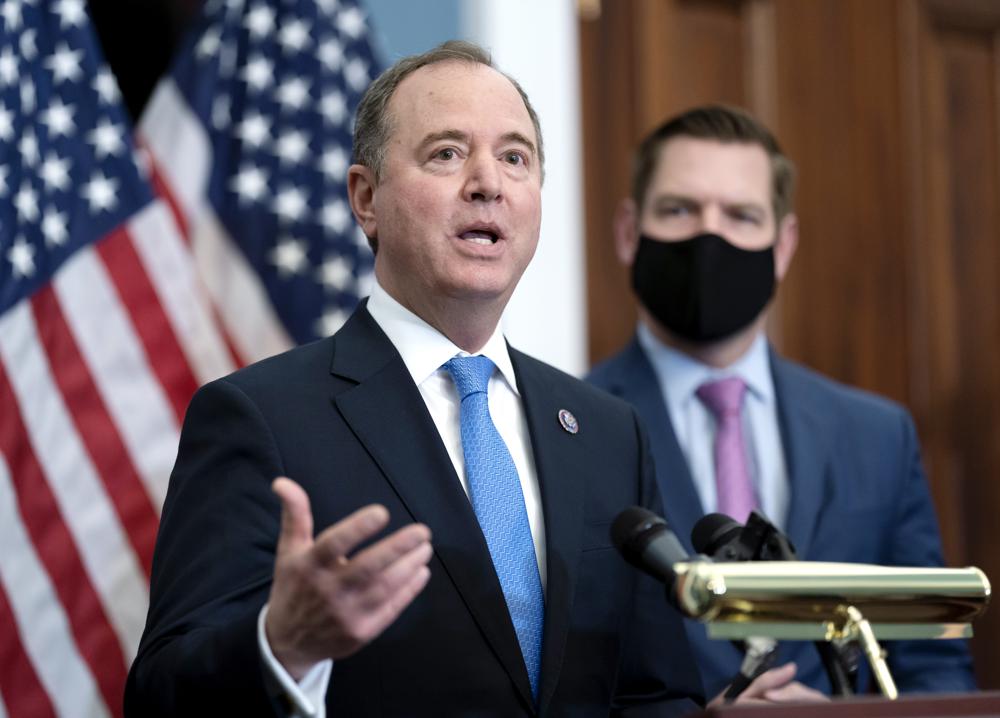
With rare but fragile alignment, the U.S. Congress is largely backing President Joe Biden’s decision to confront Russia with potentially escalating sanctions for the crisis in Ukraine as lawmakers brace for perhaps the most daunting foreign policy crisis the nation has faced in a generation. But the next steps are highly volatile. With isolationist impulses rising at home, Congress has no appetite for war. Yet Americans also appear ambivalent about the U.S. working to keep the peace. New polling from The Associated Press and NORC says just 26% of Americans want the U.S. to play a major role in the Russia-Ukraine conflict. House Speaker Nancy Pelosi said Wednesday that Russia’s aggression toward Ukraine is “an attack on democracy,” vowing that the U.S. will stand united with its allies around the world in swiftly imposing sanctions on Russia and ensuring financial and political support for an independent Ukraine. Pelosi, who returned to the Capitol from a diplomatic overseas trip, situated the aggression from Russia toward Ukraine alongside intervention in the United States’ own democratic process during the 2016 election. “There will be a price to pay for Vladimir Putin,” she said, flanked by lawmakers who had joined her delegation at the annual security conference in Munich. While Republican critics of the Biden administration — and even some Democrats — want the White House to go even tougher with swifter and more severe sanctions on Russia, most have given varying degrees of support for the White House strategy, including Biden’s move Wednesday to sanction the company building the Russia-to-Germany Nord Stream 2 gas pipeline. The top Republican on the Foreign Relations Committee, Sen. Jim Risch of Idaho, said sanctions on Nord Stream 2 are “long overdue, but I cannot overstate how critical they are to showing Putin that violating a nation’s sovereignty has consequences.” Risch, who has worked with colleagues on a bipartisan basis for years trying to end the pipeline, said: “It is good to see President Biden do the right thing.” Republican leaders have sought to steer the conversation to their preferred terms, as the party whose defense hawks once led the nation on the national security front. But it’s not at all clear whether today’s GOP can keep Republicans from tapping into an impassioned non-interventionist strain unleashed by Donald Trump’s “America First” approach. It was Trump who sought to strip protections for Ukraine from the Republican Party platform for the 2016 election and who was impeached by the House for abuse of power after he pressured the Ukrainian president to dig up dirt on Biden ahead of the 2020 campaign. This week, Trump cheered on Putin as he massed military forces near Ukraine’s border and recognized the independence of its separatist regions in a move Biden and others warned was the start of an invasion of Ukraine. As president, Trump had been critical of NATO, working to distance the U.S. from the historic partnership and berating allies to contribute more money to defense. Senate Republican leader Mitch McConnell, a longtime champion of NATO, spoke highly of the Western alliance this week, but some within his party are gravitating away from that traditional Republican position and toward Trump’s views. McConnell said he wants to see Biden impose the “toughest possible sanctions.” Other Republicans, though, most notably Sen. Josh Hawley of Missouri, a potential Republican presidential hopeful, has said the U.S. should be paying closer attention to the greater challenges he believes are posed by China. Still, most Republican senators are backing Biden’s sanctions on Putin, even if some are clamoring for more and taking political punches at Biden for seeming too tepid. Republican Sen. Lindsey Graham of South Carolina, a sometimes Trump ally who is also one of the party’s leading defense hawks and who used to globetrot with fellow GOP Sen. John McCain, invoked his late colleague this week in urging Biden to confront Putin more forcefully. Graham said Congress should impose “sanctions from hell” on Putin and his regime when lawmakers return to work next week. Sen. Ted Cruz, who had single-handedly blocked Biden’s nominees for various State Department posts to halt the Russia-to-Germany pipeline, said with the announced new sanctions, he would lift his blockade. “President Biden has now taken positive steps,” Cruz, R-Texas, said in a statement. “But much more still needs to be done to deter and counter the threat that Putin poses to our allies in Ukraine and across Europe.” Pelosi said Russians need to understand what their leader is doing. “It’s stunning to see in this day and age a tyrant roll into a country,” Pelosi said. “This is the same tyrant who attacked our democracy in 2016,” It’s unclear what more, if anything, Congress will do to confront Russia, as lawmakers hold back their own legislative response to Putin while Biden engages U.S. allies in a more global strategy. The Senate has bipartisan support for a robust sanctions package, but after running into differences over the scope and timing of the response decided to shelve a vote as the White House pursued its own approach. Graham has suggested a supplemental spending package for Ukraine, which already receives money and defensive equipment from the U.S., but it does not yet appear that additional funds are being considered. Republished with the permission of the Associated Press.
Tommy Tuberville continues push to fully reopen U.S. Capitol, Senate to visitors

U.S. Senator Tommy Tuberville joined U.S. Senator Bill Hagerty in introducing a resolution supporting the full reopening of the U.S. Capitol and Senate Office Buildings to the American public. Tuberville has been vocal on returning the U.S. Capitol and Senate Office Buildings to pre-COVID visitation policies. The Capitol and Senate office buildings have remained largely closed to the public for nearly two years. This closure has restricted lawmakers’ ability to welcome constituents to their offices and arrange for Capitol tours. The resolution aims to recognize the importance of reopening the U.S. Capitol and Senate office buildings and support returning to the pre-COVID public visitation policies for areas within Senate jurisdiction. Senator Tuberville expressed the need to open the Capitol so that the public can watch the democratic process. “Two years ago, it was reasonable to close public access in the name of public health. But now, it is no longer justifiable to restrict the public’s access to Capitol Hill, and we must accept the reality that we will be living with COVID for the foreseeable future,” Tuberville commented. “It should not be the case that only Members of Congress, their staff, and a few select people be the only ones who can access the Capitol. Americans deserve to visit their country’s beacon of democracy.” Hagerty argued that the Capitol needs to be reopened because the rest of the U.S. has reopened. “It is long past time for the Senate to re-open its doors to those who sent us here to represent them—the American people,” stated Hagerty. “Thanks to Operation Warp Speed, vaccines have been available for over a year for those who want them, and Americans from coast to coast have learned to live their lives safely despite the pandemic. From stores to venues and most workplaces and schools, the rest of the United States has re-opened, and it’s time for the Senate to do the same.” Other senators who support the resolution include Senators John Thune (R-SD), Jerry Moran (R-KS), Marco Rubio (R-FL), Rick Scott (R-FL), James Inhofe (R-OK), James Lankford (R-OK), Mike Braun (R-IN), Thom Tillis (R-NC), Kevin Cramer (R-ND), Roger Wicker (R-MS), Cindy Hyde-Smith (R-MS), John Cornyn (R-TX), Cynthia Lummis (R-WY), Rand Paul (R-KY), John Hoeven (R-ND), Chuck Grassley (R-IA), John Kennedy (R-LA), Josh Hawley (R-MO), Ron Johnson (R-WI), John Boozman (R-AR), Roger Marshall (R-KS), Marsha Blackburn (R-TN), Mike Crapo (R-ID), Jim Risch (R-ID), and John Barrasso (R-WY).


